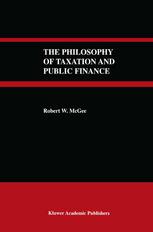

Most ebook files are in PDF format, so you can easily read them using various software such as Foxit Reader or directly on the Google Chrome browser.
Some ebook files are released by publishers in other formats such as .awz, .mobi, .epub, .fb2, etc. You may need to install specific software to read these formats on mobile/PC, such as Calibre.
Please read the tutorial at this link: https://ebookbell.com/faq
We offer FREE conversion to the popular formats you request; however, this may take some time. Therefore, right after payment, please email us, and we will try to provide the service as quickly as possible.
For some exceptional file formats or broken links (if any), please refrain from opening any disputes. Instead, email us first, and we will try to assist within a maximum of 6 hours.
EbookBell Team

4.8
94 reviewsMost public finance books are texts, which are aimed at undergraduate or graduate students. They are overly technical in nature and appeal only to a narrow range of bureaucrats and academics. Books on taxation are written for tax practitioners and usually emphasize either what the law is or how to maneuver through the labyrinth of tax law to minimize taxes for clients. Philosophy books on taxation or public finance simply do not exist.
The Philosophy of Taxation and Public Finance is different. It is written in nontechnical language and is aimed to appeal to a wide range of readers, including practitioners, academics and students in the fields of taxation, public finance, economics, law, philosophy and political science as well as general readers who are interested in learning why they are being taxed the way they are. The author addresses the major issues and topics in taxation and public finance and injects them with philosophical insights. He discusses questions such as:
-What arguments have been used to justify taxation?
-When is tax evasion unethical?
-Are some taxes better than others?
-What are the proper functions of government?
-How much is enough? Is the ability to pay concept valid?
-When can punitive taxes be justified?